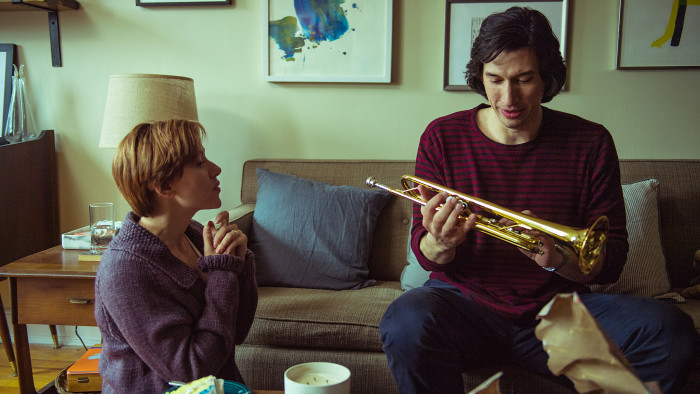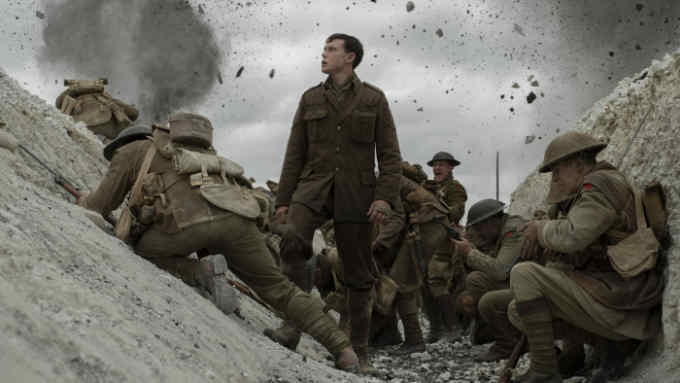Quentin Tarantino on seismic changes in Hollywood in 1969 and now

Simply sign up to the Film myFT Digest -- delivered directly to your inbox.
Quentin Tarantino’s private cinema isn’t quite what you might expect. Despite its multiplex dimensions, it’s not so much a temple as a very comfortable den. Film posters (Rolling Thunder, The Town That Dreaded Sundown) hang without frames in such a casual manner that you get the impression they change every few weeks, like in a real movie-house; there are several racks of laser discs in one corner; an old-school arcade game, Galaxian, stands to the left of the screen. Memorabilia from his own films is scarce but includes a lovely black-and-white shot of the director with his cast on the set of Inglourious Basterds.
This LA screening room had a big part to play in the research for Tarantino’s latest film Once Upon a Time . . . in Hollywood, a glorious, romantic throwback movie set in 1969, a time when the hippie movement had seeped into the mainstream. At the movies, a culture war was raging: bloated studio musicals such as Paint Your Wagon and Doctor Dolittle crashed and burned as a new wave of movies featuring sex, drugs and violence — Easy Rider, Bonnie and Clyde, Rosemary’s Baby — pushed them out of the way.
“By 1967 things were starting to change,” says Tarantino, “and by mid-’68 it was clear what was going on. By 1969 it was pretty much official, and by 1970 it was just the way it was.”
To guide us through these troubled times, Tarantino gives us Rick Dalton and Cliff Booth, an actor and stuntman combo (somewhat modelled on Burt Reynolds and his best bud Hal Needham) played by Leonardo DiCaprio and Brad Pitt. Booth lives in a trailer way out of town, but Dalton has a house in LA’s Benedict Canyon where a midlife crisis is partially triggered by the arrival of his hip new neighbours: Rosemary’s Baby director Roman Polanski and his actress wife Sharon Tate.

In the real world, Tate has come to embody the end of the flower-power era, having met a violent death at the hands of Charles Manson’s followers in 1969. But in Once Upon a Time she is the film’s life force, played with charm and affection by DiCaprio’s Wolf of Wall Street co-star Margot Robbie.
Tarantino’s screening room has shown a lot of films starring people such as Tate, Booth and especially Dalton — square-jawed matinee idols who had stardom in their grasp but never quite tipped over. Names such as George Maharis, Robert Culp, Edd Byrnes and Vince Edwards trip from Tarantino’s tongue. “And then, all of a sudden, they were replaced by long-haired, skinny, androgynous types. Usually the hippie sons of movie stars — like, Michael Douglas, maybe. The whole masculine thing was passé. It was over.”
Given the pairing of two washed-up actors and an ill-fated starlet, you might expect Once Upon a Time to be grim and unrelenting, and yet it isn’t: it might even be Tarantino’s warmest, most emotional film to date. Using a dense mosaic of period pop tunes, from The Mamas and the Papas to Neil Diamond and The Rolling Stones, he takes the scenic route to his surreal, violent and wildly unexpected climax on the night of Tate’s murder on August 9 1969, following his characters through the various pit stops of an ordinary weekend.
The period detail is phenomenal, in the sets and the dialogue alike, but it’s not intended as a history lesson. “I’m not expecting people to get all the references,” he says. “I’m expecting you to think that I’m the expert, and you don’t know anything, and I’m talking way over your head. But that doesn’t matter, because that’s not what it’s about . . . ” The only people who actually really understand the script, he says, are movie veterans such as cast members Bruce Dern and Kurt Russell (who narrates the film). “All the guys that were making movies back then. They get every joke, every reference. They’re like, ‘You nailed it. Every actor reference you make is perfect.’ ”

Tarantino has taken on a role as one of the chief custodians of Hollywood pop culture history, but is unsure if it will live on after him. “If I were to get hit by a car tomorrow and I’m dead, all this stuff in my house that I’ve spent my life since childhood collecting, it wouldn’t mean anything to anybody. I can see people being hired to go through those laser discs over there and be like, ‘What is all this shit? Who cares about all this?’ ”
The film itself, however, is proof of Tarantino’s enduring popularity — it took an impressive $41m at the US box office in its opening weekend — and yet, 27 years after the breakout success of his debut Reservoir Dogs, the director continues to weather questions about his continued relevance. Is Hollywood a town built on shifting sands, a place that consumes everyone eventually?
“It’s easy to make a big deal about it,” he says, “but every 10 years there’s a big shift. I mean, the Hollywood movies of the ’50s feel like Eisenhower-influenced movies; they didn’t at the time, because that was just the way it was. But by ’67, the movies of the ’50s — just seven years before — seemed really kind of out of date. I wouldn’t be able to tell you the specific difference between the movies of, say, 2006 and the movies of 2016, because I haven’t put those years under a microscope. To me, those movies haven’t lived on in my mind the way the movies of the ’60s or the ’70s and the ’80s and the ’90s have. But I’m sure it’s there.”
The new film’s success may come as a blow to those who would like to throw Tarantino under the bus in the age of post-#MeToo sensitivity. They point to his long association with the now disgraced mogul Harvey Weinstein, and his cavalier treatment of Uma Thurman on the set of Kill Bill, where she was injured in a misjudged driving stunt (the two remain on good terms, and Thurman’s daughter Maya even appears in Once Upon a Time as the Manson Family’s getaway driver). Others point out that few A-list directors collaborate as frequently with female creatives — not least producers Stacey Sher and Shannon McIntosh, his late longtime editor Sally Menkes, and stunt co-ordinator Zoe Bell.
“We’re in a repressive time,” he says, “but movies go back and forth between progressive times and repressive times. The ’40s, the late ’60s, the ’70s and the ’90s were the progressive times. And the ’50s, the ’80s and now are the regressive times.”
Noah Baumbach on Marriage Story

Listen to the film-maker discuss love, divorce — and how Netflix is changing movies in the new episode of our Culture Call podcast. Plus: the FT’s film critic on everything you need to know about this year’s Academy Awards
However, those who want to see the back of Tarantino might not have to wait too long. The 56-year-old director, who recently married Israeli actor/singer Daniella Pick, has often said that he will make just 10 movies and then bow out gracefully — which leaves only one more movie. Having made stars, reinvented stars and worked with the biggest names in the business (Al Pacino in Once Upon a Time is the latest), is there anybody who has so far eluded him? “Oh, there’s a zillion actors that passed on before I could ever work with them.”
And of the still-living? He pauses. “I think Tom Hanks is an amazing actor. I think we’d really get along — and we have gotten along in a couple of dinners. He’s more of a sarcastic guy than people quite know, but I like that. I like people who kind of f*** with you a little bit and he kind of f***s with you a little bit.”
Tarantino hasn’t ruled out TV or stage work, but there’s only one more chance to make a movie with Hanks. So why stick to the 10-and-out rule? The director refuses to clarify his motives. “But I will say one thing: it’s almost a 30-year career now, and that’s a really long, long time. Pick some of your favourite directors and look where they were when they started, and look where they were when they ended. A lot of them don’t make it to year 27. I’m not saying that my work is great and their work is not. I’m just saying — that’s a long time.”
‘Once Upon a Time . . . in Hollywood’ is in UK cinemas from August 14
Follow @FTLifeArts on Twitter to find out about our latest stories first. Listen and subscribe to Everything Else, the FT culture podcast, at ft.com/everything-else or on Apple Podcasts

Comments